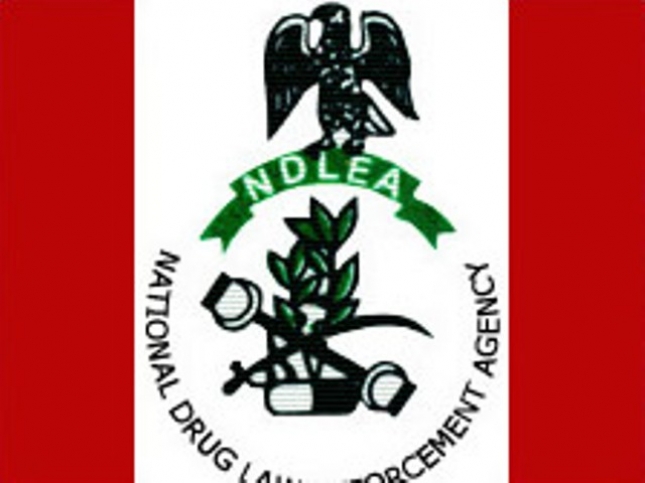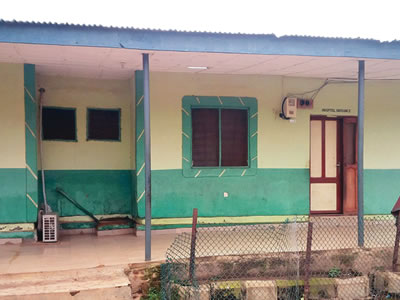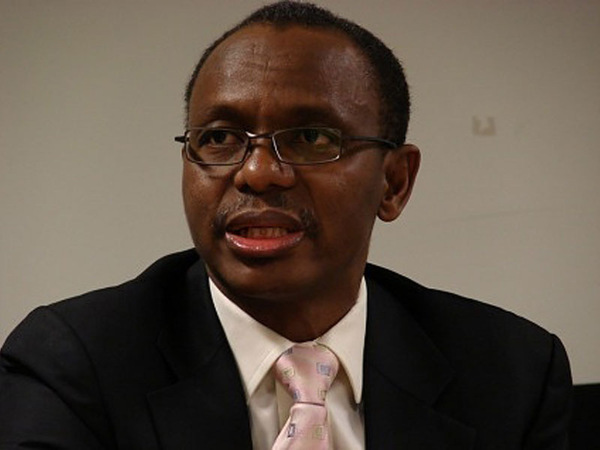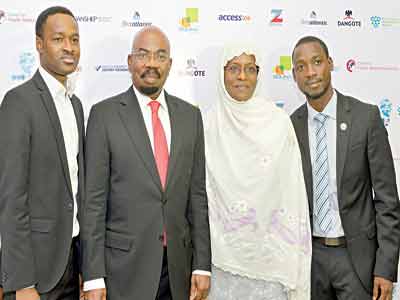Massive clinical trial on aspirin to stop cancer
 The world's largest ever clinical trial looking at whether taking aspirin every day stops some of the most common cancers coming back, launched across the UK yesterday (Thursday). The Add-Aspirin phase III trial, the largest of its kind and funded byCancer Research UK and the National Institute for Health Research, aims to find out if taking aspirin every day for five years can stop or delay cancers that have been caught and treated at an early stage from returning. It will also study how the drug might do this. The study will recruit 11,000 patients who have recently had, or are having, treatment for bowel, breast, oesophagus (food pipe), prostate or stomach cancer. It will be open at more than 100 centres across the UK and will run for up to 12 years.
The world's largest ever clinical trial looking at whether taking aspirin every day stops some of the most common cancers coming back, launched across the UK yesterday (Thursday). The Add-Aspirin phase III trial, the largest of its kind and funded byCancer Research UK and the National Institute for Health Research, aims to find out if taking aspirin every day for five years can stop or delay cancers that have been caught and treated at an early stage from returning. It will also study how the drug might do this. The study will recruit 11,000 patients who have recently had, or are having, treatment for bowel, breast, oesophagus (food pipe), prostate or stomach cancer. It will be open at more than 100 centres across the UK and will run for up to 12 years.
The study will compare two groups of people taking different doses of aspirin and a group taking placebo (dummy) tablets. Aspirin is already proven to help preventheart attacks and strokes in some people, and research has suggested that it could also prevent some types of cancer. Professor Ruth Langley, chief investigator from the MRC Clinical Trials Unit at UCL, said: "There's been some interesting research suggesting that aspirin could delay or stop early stage cancers coming back, but there's been no randomised trial to give clear proof. This trial aims to answer this question once and for all. If we find that aspirin does stop these cancers returning, it could change future treatment—providing a cheap and simple way to help stop cancer coming back and helping more people survive.
Malaria, World's first vaccine delayed as WHO experts urge caution
 The world's first malaria vaccine is promising but should be used on a pilot basis before any wide-scale use, given its limited efficacy, World Health Organization (WHO) experts said on Friday. The decision is likely to delay a possible broad roll-out of the shot for between three and five years. GlaxoSmithKline's Mosquirix could, in theory, help stop millions of cases of malaria in young children in Africa at risk of the deadly mosquito-borne disease. However, it is less effective than vaccines against many other diseases and there is uncertainty as to whether countries can effectively administer the four doses needed.
The world's first malaria vaccine is promising but should be used on a pilot basis before any wide-scale use, given its limited efficacy, World Health Organization (WHO) experts said on Friday. The decision is likely to delay a possible broad roll-out of the shot for between three and five years. GlaxoSmithKline's Mosquirix could, in theory, help stop millions of cases of malaria in young children in Africa at risk of the deadly mosquito-borne disease. However, it is less effective than vaccines against many other diseases and there is uncertainty as to whether countries can effectively administer the four doses needed.
Jon Abramson, chairman of the WHO Strategic Advisory Group of Experts, or SAGE, said experts recommended there should be three to five demonstration projects in children aged five to 17 months before considering wider use. These projects could involve up to 1 million children and would likely take three to five years to run, he added. SAGE did not recommend the use of Mosquirix, also known as RTS,S, in young babies. Committee experts said it was vital to give all four doses of the vaccine to ensure optimal efficacy, even though getting children back for multiple repeat shots could be challenging. "If we can't get four doses of this vaccine into the children, we're not going to be using it," Abramson told reporters.
NDLEA Raids Drug Stores, Seizes Cough Syrup, 824 Kg Of Hard Drugs
 The National Drug Law Enforcement Agency (NDLEA), Plateau Command, said it seized 1,510 bottles of cough syrup and 824 kilogrammes of hard drugs in a recent raid on drug stores. Its Commander, Dr Ngozi Madubuike, made this known in an interview with the News Agency of Nigeria (NAN) in Jos on Sunday. She said the drug stores raided were in Jos-Bukuru metropolis, adding that the NDLEA officers also confiscated psychotropic substances. She explained that the syrup was seized because it contained codeine, noting that it was a controlled drug and was not meant to be sold over the counter. “We have been able to raid some drug stores and chemists in Jos-Bukuru metropolis who are not supposed to sell such drugs over the counter because the drugs are controlled drugs.
The National Drug Law Enforcement Agency (NDLEA), Plateau Command, said it seized 1,510 bottles of cough syrup and 824 kilogrammes of hard drugs in a recent raid on drug stores. Its Commander, Dr Ngozi Madubuike, made this known in an interview with the News Agency of Nigeria (NAN) in Jos on Sunday. She said the drug stores raided were in Jos-Bukuru metropolis, adding that the NDLEA officers also confiscated psychotropic substances. She explained that the syrup was seized because it contained codeine, noting that it was a controlled drug and was not meant to be sold over the counter. “We have been able to raid some drug stores and chemists in Jos-Bukuru metropolis who are not supposed to sell such drugs over the counter because the drugs are controlled drugs.
They are to be sold by qualified medical personnel, not just by any person because the drugs are controlled; the diversion of these drugs makes them accessible to those who abuse them. “From our findings, such persons take the drugs as stimulants because of the codeine in it which is a narcotic drug used medically for the production of some cough syrup.’’ She lamented that most youths who were into drugs buy the cough syrup not to treat cough “but to make them high and prepare them for nefarious activities.’’ Madubuike revealed that the command had earlier seized 824.517 kilogrammes of cannabis, cocaine and psychotropic substances.
FG To Spend $45m For Measles Immunisation Prog
 The Federal Government has said a total of $45, 506,787 million is being earmarked for measles immunization campaigns with a target population of 39,039,651 children across Nigeria. Speaking to journalists recently on a one-day media orientation workshop on 2015 Measles Follow Up Campaign for Health Programme Producers and Editors,, the Director, Disease Control and Immunisation, National Primary Health Care Development Agency (NPHCDA), Dr Damaris Onwuka, said the Global Alliance for Vaccine International (GAVI ) is providing $25 million of it, while state governments are providing some. She said the federal government has planned for measles campaign in two phases across the country, with phase one starting from November 21st-25th while phase 2 starts from January 28th to February 1st 2016.
The Federal Government has said a total of $45, 506,787 million is being earmarked for measles immunization campaigns with a target population of 39,039,651 children across Nigeria. Speaking to journalists recently on a one-day media orientation workshop on 2015 Measles Follow Up Campaign for Health Programme Producers and Editors,, the Director, Disease Control and Immunisation, National Primary Health Care Development Agency (NPHCDA), Dr Damaris Onwuka, said the Global Alliance for Vaccine International (GAVI ) is providing $25 million of it, while state governments are providing some. She said the federal government has planned for measles campaign in two phases across the country, with phase one starting from November 21st-25th while phase 2 starts from January 28th to February 1st 2016.
According to Onwuka, Phase 1 will target 19 northern states, including the Federal Capital Territory while Phase 2 will focus on 17 southern states. She disclosed that there was a measles outbreak sometime ago in one of the internally displaced camps in Adamawa. She, however, noted that the coming measles immunization campaign will not be house-to-house as service will be provided at fixed and temporary posts while care takers are expected to visit the nearest post. According to the director, the campaign will not also be integrated with oral polio vaccine.
NAFDAC’s War Against Fake Drugs, Foods In South-South
 Recently, the National Agency for Food, Drug Administration and Control (NAFDAC) said it uncovered assorted counterfeit drugs worth over N40 million in Asaba, the Delta State capital. The agency said the drugs were found in the 3-bedroom apartment of 32 year-old man, Paul Eli. The counterfeit drugs include Maloxine, Lumatem (anti-malaria drugs), LOFNAC (for body pains relief), Buscomac (for stomach pain relief) and Rysovin (anti-fungal drug), alongside already printed mobile authentication numbers. Eli, a graduate of Management Science from the University of Nigeria, Nsukka, was arrested at his residence at 2, Charles Edozien Avenue, Asaba, where he is reportedly packaging the counterfeit drugs with mobile authentication number to make it appear genuine in the eyes of the unsuspecting patients.
Recently, the National Agency for Food, Drug Administration and Control (NAFDAC) said it uncovered assorted counterfeit drugs worth over N40 million in Asaba, the Delta State capital. The agency said the drugs were found in the 3-bedroom apartment of 32 year-old man, Paul Eli. The counterfeit drugs include Maloxine, Lumatem (anti-malaria drugs), LOFNAC (for body pains relief), Buscomac (for stomach pain relief) and Rysovin (anti-fungal drug), alongside already printed mobile authentication numbers. Eli, a graduate of Management Science from the University of Nigeria, Nsukka, was arrested at his residence at 2, Charles Edozien Avenue, Asaba, where he is reportedly packaging the counterfeit drugs with mobile authentication number to make it appear genuine in the eyes of the unsuspecting patients.
The suspect said he has been in the business for over one year, adding that he does the packaging of the drugs after receiving them from his business associate, whom he simply named as Chibuike in Lagos, but denied knowledge of the drugs being fake. Disclosing how the drugs are being distributed in Kano through his business partner, Chibuike in Sabon-Gari, the suspect who hails from Anambra State, said the drugs were being imported from India by his partner in Lagos. Few weeks ago, operatives of Task Force on Fake and Counterfeit Drugs of the Rivers State Ministry of Health, in conjunction with NAFDAC, raided and sealed up no fewer than 18 shops in the Orazi and Mgbuoba axis of Port Harcourt, the state capital.
Global health body says 'Suya', 'Kilishi' can cause cancer
 The World Health Organization (WHO) has revealed that Nigeria’s most patronized barbeque, Suya and Kilishi, can cause cancer. This came to light in WHO's anticipated report on the link between red meat and cancer. According to the report, which did not categorically mention Suya or Kilishi, stated that 50g of processed meat a day increases the chance of developing colorectal cancer by 18%. A BBC report on Monday, October 26, defined processed meat as meat that “has been modified to increase its shelf-life or alter its taste – such as by smoking, curing or adding salt or preservatives”. However, Suya is processed red meat, and when prepared, it is seasoned with salt, pepper and groundnut powder. Kilishi, on the other hand, is a drier version of suya.
The World Health Organization (WHO) has revealed that Nigeria’s most patronized barbeque, Suya and Kilishi, can cause cancer. This came to light in WHO's anticipated report on the link between red meat and cancer. According to the report, which did not categorically mention Suya or Kilishi, stated that 50g of processed meat a day increases the chance of developing colorectal cancer by 18%. A BBC report on Monday, October 26, defined processed meat as meat that “has been modified to increase its shelf-life or alter its taste – such as by smoking, curing or adding salt or preservatives”. However, Suya is processed red meat, and when prepared, it is seasoned with salt, pepper and groundnut powder. Kilishi, on the other hand, is a drier version of suya.
The WHO report also said high temperature cooking on a barbeque can create carcinogenic – cancerous chemicals. “For an individual, the risk of developing colorectal (bowel) cancer because of their consumption of processed meat remains small, but this risk increases with the amount of meat consumed,” Kurt Straif from the WHO said. According to estimation, 34,000 deaths from cancer every year could be down to diets high in processed meat. A professor from the Cancer Research UK and the University of Oxford, Tim Key, said; “This decision doesn’t mean you need to stop eating any red and processed meat, but if you eat lots of it you may want to think about cutting down.
Health education graduate performs surgery in Kwara clinic
 The Medical and Dental Council of Nigeria has raided a hospital in Ilorin, Kwara State, identified as Springsway Hospital. It learnt that many documents and a medical certificate believed to have been stolen from their owners were found during the raid on Saturday. The Head of Inspectorate, MDCN, Dr. Okwuokenye Henry, who was in Ilorin on the instruction of the council’s registrar, Dr. Abdulmumini Ibrahim, said the council got a report that a doctorate degree holder in Human Kinetics and Health Education, Dr. Olaitan Lanre, established and operated the facility in Oko Erin area of the state. He added that Lanre had allegedly been working as a doctor, carrying out surgery and fertility operations on patients in the clinic which operates 24 hours services.
The Medical and Dental Council of Nigeria has raided a hospital in Ilorin, Kwara State, identified as Springsway Hospital. It learnt that many documents and a medical certificate believed to have been stolen from their owners were found during the raid on Saturday. The Head of Inspectorate, MDCN, Dr. Okwuokenye Henry, who was in Ilorin on the instruction of the council’s registrar, Dr. Abdulmumini Ibrahim, said the council got a report that a doctorate degree holder in Human Kinetics and Health Education, Dr. Olaitan Lanre, established and operated the facility in Oko Erin area of the state. He added that Lanre had allegedly been working as a doctor, carrying out surgery and fertility operations on patients in the clinic which operates 24 hours services.
39% Of Stroke Survivors In Nigeria Die Within 3 Months – FG
 The federal government says its recent facility-based study shows that the global stroke crisis kills 39 per cent of its survivors in Nigeria within three months while another 12 per cent develop severe disability afterward. This is coming as Nigeria marks this year’s World Stroke Day yesterday to underscore the serious nature and high rate of strokes, create awareness on prevention, treatment option, better care and support for survivors. The permanent secretary of the Federal Ministry of Health, Linus Awute said at the event in Abuja that over 15 million people suffer from stroke attack each year and about 6 million of them die from it globally, urging against lifestyle changes that trigger the condition.
The federal government says its recent facility-based study shows that the global stroke crisis kills 39 per cent of its survivors in Nigeria within three months while another 12 per cent develop severe disability afterward. This is coming as Nigeria marks this year’s World Stroke Day yesterday to underscore the serious nature and high rate of strokes, create awareness on prevention, treatment option, better care and support for survivors. The permanent secretary of the Federal Ministry of Health, Linus Awute said at the event in Abuja that over 15 million people suffer from stroke attack each year and about 6 million of them die from it globally, urging against lifestyle changes that trigger the condition.
He said: “Stroke is a common complication of hypertension, diabetes and sickle cell disease and this conditions share similar risk factors like unhealthy nutrition- fast foods, excess salt and sugar intake, with attendant overweight and obesity- lack of physical activity, excess alcohol intake and tobacco use.” According to Awute, the government is concerned about the increasing burden caused by stroke and other non-communicable diseases which has led to the flag off of the National Stroke Prevention Programme and the inauguration of the National Stroke Reference Group. The World Health Organisation (WHO) estimates that stroke is the second leading cause of death among people above 60 years and the fifth leading cause of death in people aged 15 to 59.
Kaduna unveils new healthcare law
 Kaduna State government unveiled its new primary healthcare law. Addressing the second Kaduna State Healthcare Partners’ Summit, Governor Nasir el-Rufai commended the state’s House of Assembly for the speedy passage of the law. According to the governor, the new law would permit the state to organise its primary healthcare activities under one roof, adding that implementation of the law would transfer workers in primary healthcare centres from local governments to the state’s civil service. El-Rufai said: “When we had the first summit on June 16, 2015, our young government was delighted by the turnout and your willingness to work with us. Health is one of the priority sectors for this government, and I must thank you for sharing our goal to deliver for Kaduna State citizens a better health and longer life expectancy.
Kaduna State government unveiled its new primary healthcare law. Addressing the second Kaduna State Healthcare Partners’ Summit, Governor Nasir el-Rufai commended the state’s House of Assembly for the speedy passage of the law. According to the governor, the new law would permit the state to organise its primary healthcare activities under one roof, adding that implementation of the law would transfer workers in primary healthcare centres from local governments to the state’s civil service. El-Rufai said: “When we had the first summit on June 16, 2015, our young government was delighted by the turnout and your willingness to work with us. Health is one of the priority sectors for this government, and I must thank you for sharing our goal to deliver for Kaduna State citizens a better health and longer life expectancy.
“During the first summit, we shared with you some of the dismal indices of our state in infant and maternal mortality, malaria treatment, measles vaccination and HIV/AIDS prevalence. We did that not for purposes of pointless lamentation, but to underline the scale of the challenge and our duty to deliver better healthcare outcomes to our people.” “One of our key goals is to place our state in the top tier for healthcare delivery. Participants responded positively to our request for coordination and collaboration among partners and donors to support our government’s healthcare programme.
Nigeria-made rapid urine test for malaria wins Health Innovation Awards
 A Nigeria-made malaria test that can diagnose the disease within 25 minutes using just drops of patients’ urine sample has won the inaugural 2015 Health Innovation Challenge Awards. The awards was instituted by the Private Sector Health Alliance of Nigeria (PHN) through the Nigeria Health Innovation Marketplace (NHIM). Urine Malaria Test (UMT), which is endorsed by the Federal Ministry of Health (FMoH) and approved by the National Agency for Food Drugs Administration and Control (NAFDAC) and developed by Fyodor Biotechnologies was the first among the five winning innovations from the 2015 Health Innovation Challenge. The overall performance of the UMT is equivalent to that of the Binax NOW blood test, the only malaria rapid test approved by the United States Food and Drug Administration (FDA).
A Nigeria-made malaria test that can diagnose the disease within 25 minutes using just drops of patients’ urine sample has won the inaugural 2015 Health Innovation Challenge Awards. The awards was instituted by the Private Sector Health Alliance of Nigeria (PHN) through the Nigeria Health Innovation Marketplace (NHIM). Urine Malaria Test (UMT), which is endorsed by the Federal Ministry of Health (FMoH) and approved by the National Agency for Food Drugs Administration and Control (NAFDAC) and developed by Fyodor Biotechnologies was the first among the five winning innovations from the 2015 Health Innovation Challenge. The overall performance of the UMT is equivalent to that of the Binax NOW blood test, the only malaria rapid test approved by the United States Food and Drug Administration (FDA).
The award given to Fyodor UMT comes with a grant of $100,000 and enrollment in the accelerated programme of the NHIM. The presentation was made in Lagos, at the 2015 Nigeria Health Innovation and Impact Investment Summit. The Nigeria Health and Innovation Impact Investment Summit event was tagged “2015 Disrupting Healthcare, Saving Lives.” The activation of the PHN was formally endorsed by former President Goodluck Ebele Jonathan, Mr. Bill Gates, Alhaji Aliko Dangote, Dr. Muhammad Ali Pate, Mr. Jim Ovia, Mr. Aigboje Aig-Imoukhuede, Mrs. Sola David Borha and other corporate leaders in Nigeria to mobilise the broader business and corporate community as well as the private health sector towards a multi-sectoral coalition to improving health outcomes.






